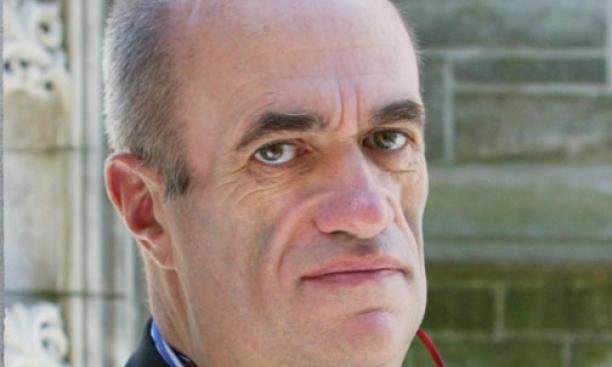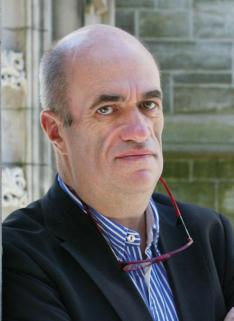
The students in Colm Tóibín’s fiction-writing workshop aren’t the only ones who benefit from his coming from his native Ireland to teach at Princeton. A visiting professor in creative writing who taught last year and will return in 2011, Tóibín says he benefits as well.
“There’s a syndrome developing. Every time I go away now, I produce a desolate short story that I write in the first three or four weeks of being in America,” says Tóibín, whose six novels include The Master, a fictionalized account of the life of Henry James that was short-listed for the Man Booker Prize, and his most recent novel, Brooklyn, about a young Irish woman who moves to Brooklyn in the 1950s.
His “desolate” stories draw on his experience of being away from home — uprooting himself, arriving, dealing with new living arrangements and different sleeping patterns, and “the almost loneliness,” says Tóibín. “All that joined together gets to you,” he says, and from that have come four short stories — two produced at Princeton.
The weather and time of year, he says, have something to do with the inspiration for these pieces. Last year, he arrived in Princeton to a “fierce, bone-chilling winter,” and within a few weeks had written “The Color of Shadows,” about a man who had been abandoned by his mother as a young boy, raised by his aunt, and later tends to his aunt as she lies dying. That piece appeared in The New Yorker in April 2009. This year he wrote the tentatively titled “Morning Light and the Soft Horizon,” about an Irishman, about his age, coming alone to New York in February or March and “having to navigate a new world.”
Tóibín is the Leonard L. Milberg ’53 Visiting Lecturer in Irish Letters and is teaching a literature course, “The Irish Novel,” in the English department.
Just as he creates an atmosphere in his works of fiction, as a teacher in his weekly two-hour creative writing workshop Tóibín creates an environment for his students — one that’s relaxed, full of laughter, and “positive” despite the potential awkwardness of having one’s work critiqued by a group of fellow writers, he says. He wants his students to leave class ready to work harder on their stories, not feeling dejected.
“They’ve got to trust you,” he said, “but also they’ve got to trust that you are dead serious” about their writing and the work of writing fiction. He tells the students to “learn to read yourself critically” and think about fiction in a way that involves attention to details. Most important, he says, is learning “not to bore people.”

